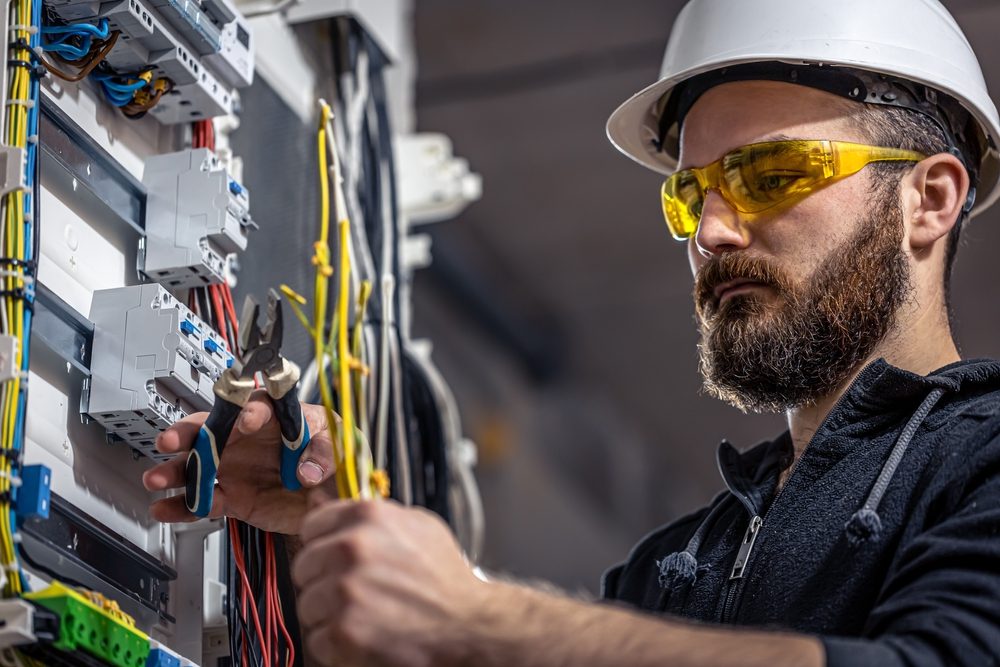When it comes to electrical work, you may find yourself unsure about the qualifications of different professionals. You’ve probably heard terms like "electrician" and "approved electrician" tossed around, but do you know what they really mean? In this article, we’ll break down the distinctions between these two types of electricians, helping you make informed decisions for your electrical needs. You'll understand why it's essential to choose the right professional and how local searches like “electricians near me” can help you find qualified individuals in your area.
Understanding the Role of an Electrician
What is an Electrician?
An electrician is a skilled tradesperson who specializes in installing, maintaining, and repairing electrical systems. They handle everything from wiring new constructions to troubleshooting existing electrical problems. Electricians are essential for residential, commercial, and industrial settings.
Types of Electricians
Electricians can be categorized into several types based on their skills and areas of expertise:
Residential Electricians: Focus on home wiring, lighting installations, and repairs. Commercial Electricians: Work on larger buildings and businesses, handling more complex electrical systems. Industrial Electricians: Specialize in large-scale industrial projects with specialized equipment. Maintenance Electricians: Responsible for routine inspections and maintenance.Common Tasks Performed by Electricians
Electricians perform a variety of tasks including:
- Installing lighting fixtures Wiring new homes or buildings Repairing faulty circuits Upgrading electrical panels Inspecting electrical systems for safety compliance
What is an Approved Electrician?
Defining an Approved Electrician
An approved electrician holds additional certifications that confirm their competence to perform specific work safely and according to regulations. This designation often comes from a recognized body or association that sets standards for quality and safety.
Certification Requirements
To become an approved electrician, one typically must:
- Complete relevant training or apprenticeship programs Pass examinations that test knowledge of electrical codes and safety practices Maintain continuing education to stay updated on industry standards
Benefits of Hiring an Approved Electrician
Hiring an approved electrician ensures that:
- Work is performed safely and efficiently Compliance with local laws and regulations Access to warranties or guarantees on work performed
What's The Difference Between An Electrician And An Approved Electrician?
The primary difference lies in certification. While all approved electricians are electricians, not all electricians are approved. This distinction affects their ability to work on certain projects legally or safely. For example:
| Feature | Electrician | Approved Electrician | |------------------------|-------------------------------------|------------------------------------| | Certification | Varies; not always certified | Holds formal certification | | Scope of Work | General tasks | Specialized or regulated tasks | | Compliance | May not meet all legal standards | Must adhere to strict guidelines | | Insurance | Varies | Often has additional coverage |
Understanding this difference is crucial when you're searching for “electricians near me.” You want someone who meets your specific needs while ensuring safety and compliance.
Why Choose Local Electricians Near Me?
Benefits of Hiring Locally
Finding electricians near you has numerous advantages:
Quick Response Times: Local professionals can usually respond faster than those from distant locations. Knowledge of Local Codes: Local electricians understand regional building codes and regulations. Community Trust: They have established reputations within the community.How to Search for Local Electricians
Searching for “electricians near me” online can yield quick results. Here’s how you can refine your search:
Use Google Maps: Type "electricians near me" into Google Maps for a list of nearby professionals. Check Reviews: Always read customer reviews to gauge reliability. Ask for Recommendations: Friends or family can provide referrals based on their experiences.Licensing Requirements for Electricians in Charlotte, NC
Understanding Licensing Laws
In Charlotte, NC, electricians must meet state licensing requirements to operate legally. This includes obtaining both a state license and any necessary local permits.
Types of Licenses Available
There are various levels of licenses available in North Carolina:
- Limited License: For basic residential work. Intermediate License: For more extensive residential projects. Unlimited License: Allows work on commercial projects without restrictions.
Why Licensing Matters
Having a licensed electrician ensures that they have met the minimum qualifications required by law, providing peace of mind regarding safety standards.
Insurance Considerations When Hiring an Electrician
Importance of Insurance Coverage
Insurance protects you as a homeowner against potential liabilities during electrical work. Here’s what you should know:
Liability Insurance: Covers damages caused by accidents during the job. Workers' Compensation Insurance: Protects against injuries sustained by workers on your property.Verifying Insurance Status
Always ask potential electricians about their insurance coverage before hiring them:
- Request proof of insurance. Verify that it covers both liability and workers' compensation.
Electrical Safety Standards You Should Know About
Understanding Electrical Codes
Electrical codes set forth safety standards that all electricians must follow during installation or repair work. These include guidelines related to wiring methods, grounding practices, and equipment ratings.
Local Variations in Codes
Different regions may have variations in codes based on local government regulations; hence it's crucial that you're aware of these when hiring someone locally.
The Cost Implications When Hiring an Electrician vs Approved Electrician
Factors Affecting Electrical Costs
The cost of hiring either type can vary significantly based on various factors:
- Type of Job Required: Simple repairs will cost less than complete rewiring jobs. Location Specifics: Costs can vary depending on geographical location; urban areas may charge higher rates compared to rural settings. Experience Level: More experienced professionals tend to charge more due to their expertise level.
Comparing Costs Between Types
While hiring an approved electrician might seem more expensive upfront due to certification costs involved—they often save money long-term through efficient repairs done right the first time around!
Do You Really Need an Approved Electrician?
Ewing Electric CoThis question often arises among homeowners considering DIY options versus hiring professionals instead! Here’s what you should keep in mind:

- If unsure about code compliance—better safe than sorry! Hiring someone knowledgeable pays off later! Major renovations typically require permits which only licensed/approved contractors will know how navigate properly!
Common Misconceptions About Hiring Qualified Professionals
Despite clear definitions surrounding these roles—misunderstandings abound! Let’s clear up some myths:
- Myth #1: All electricians are equally qualified—Reality is qualifications vary widely! Myth #2: DIY fixes save money—Reality could lead costly mistakes needing expert correction later!
FAQs About Electricians And Approved Electricians
1) What’s the main difference between an electrician & approved electrician?
The main difference lies in certification; not all electricians hold approval status but those who do meet higher competency levels!
2) Is it necessary to hire an approved electrician?
While not always mandatory—it’s advisable especially when dealing with complicated installations requiring adherence towards strict safety protocols!
3) How do I find reliable local options easily?
Simply use search engines typing “electricians near me,” filter through reviews & ask folks within your network!
4) What should I check before hiring someone?
Always verify licenses held along with current insurance status prior making final decision!
5) Are there any risks associated with hiring unqualified individuals?
Definitely! It could lead dangerous situations causing fires/electrical malfunctions down line if improper techniques utilized!


6) How often should I schedule professional inspections?
It's recommended at least once every three years unless experiencing noticeable issues beforehand warranting immediate attention!
Conclusion
Choosing between regular vs approved electricians doesn’t have be confusing anymore! Understanding distinctions helps ensure best fit each time seeking services while ensuring optimal outcomes along way! Remember always prioritize quality workmanship over lower costs upfront when considering future investments regarding home improvement projects involving electrics—safety first every single day!